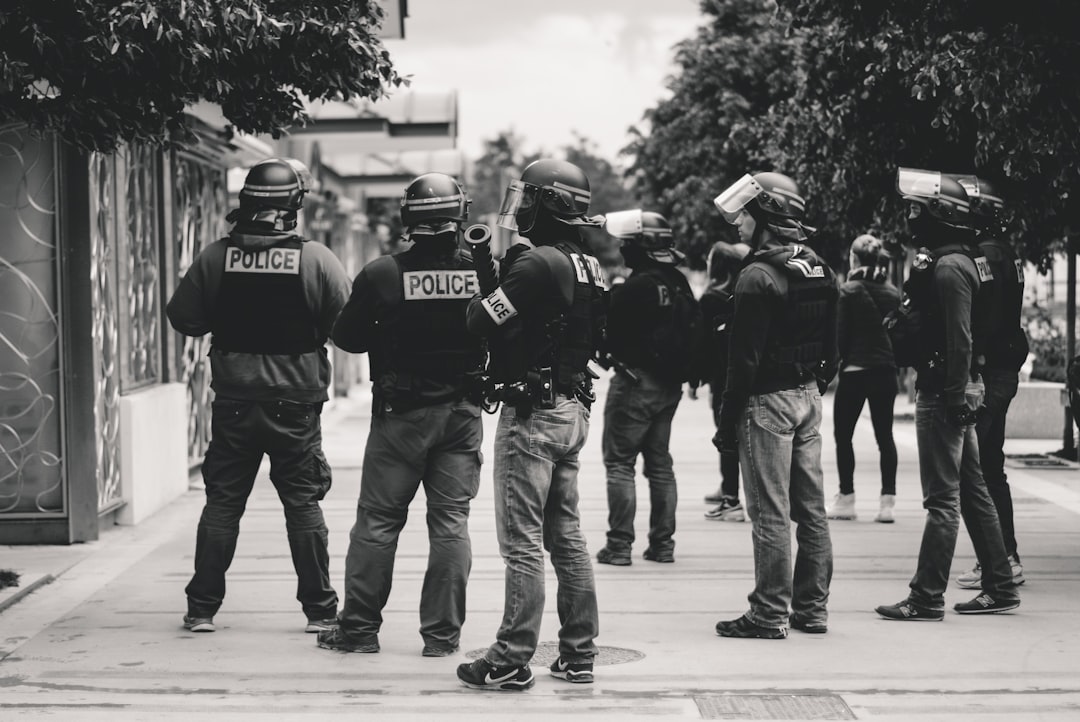Learn how to become a cop in Ct, Requirements, Disqualification Factors, Hiring Process
3 Facts About Being a Cop in CT.
Salary
Law enforcement agencies in CT pay police officer very well. According to GoBankingRates the website that track cop salaries around the country, CT is ranked 9th as the best paying state for cops
tuition reimbursement
Many police agencies in CT offer tuition reimbursement for officers who want to pursue higher education as long as its career related, and your probationary period is behind you.
Career Path
Career advancement opportunities is available throughout police agencies in CT like SWAT, Detectives, FTO, sergeant, Crime Scene Investigator, Traffic, lieutenant, K-9, gang unit, motor patrol & more
WATCH How To Become a Cop in connecticut
CT Police Requirements:
Minimum Qualifications
Note: Many police agencies in CT may require additional requirements before becoming a police officer for their agency.
- Must be a United States citizen
- Must be at least 21 years of age
- Must have a valid CT Driver's License
- Must Have high school diploma or GED
- Must not have any felonies on your criminal record
- Be in good health, adequate strength, stamina & agility
- Must pass all stages of the hiring process
- Must be in compliance with the agency's Tattoo policy
Disqualification factors to be aware of:
Likely Disqualifiers
- Being in poor health & having a bad moral character
- Being dishonest during the hiring process
- dishonorable discharge from the military
-
Convictions of manufacturing, transporting
& selling illegal drugs
- Tattoos or Art work that is offensive or discriminatory
- Abuse of alcohol or prescription medications
- Failure to pass the drug screen
- Someone w/ a history of making poor decisions
- Any Felonies & Serious Misdemeanor Convictions
step by step Process to become a cop in CT:
Hiring Process
- #1 Submit Application Online
- #2 Written Exam
- #3 Polygraph Test
- #4 Background Check
- #5 Drug Screening
- #6 Medical Evaluation
- #7 Psychological Evaluation
- #8 Oral Board Interview
Units Available to join in CT
- Mounted Patrol
- Motorcycle Patrol
- Bomb Squad
- SWAT Team
- Air Support
- Accident Investigation
- Drug/Narcotic Unit
- Marine Unit
- Detectives
- Canine/K9 Unit
- Traffic Enforcement
- Patrol Unit
salary does not reflect overtime, career promotion, longevity, shift premium, education or other incentives, overtime, etc.
Average Cop Salary in Connecticut
* salary does not reflect overtime, career promotion, longevity, shift premium, education or other incentives, overtime, etc
Find Best Police Jobs in CT
Click below to search for police jobs near me in CT. Browse jobs by city/county or zip code
Steps to become a Cop in CT
IMPORTANT:
Please visit the official webpage of the law enforcement agency that you are interested in working for as the information below may have changed.
If you’re interested in becoming a police officer in Connecticut, then you are on the right track. Connecticut police officers are required to attend a certified police academy.
The catch is you must be hired by the a city or county police department to be eligible to attend the police officer Basic Training.
In order to start a career in law enforcement in Connecticut, you must be a US citizen.
Requirements
The state requires that applicants be at least 21 years of age at the time of application. As for educational attainment, you should have at least graduated from high school. GEDs, college courses and completing at least 36 active military service are also accepted.
Felony convictions or Class A and B misdemeanor convictions are grounds for automatic disqualification. Drug and alcohol convictions, as well as driving violations, are also considered to be red flags and depending on the severity, can become grounds for disqualification. Other requirements include an active and valid driver’s license and passing the standard process for application to law enforcement.
Written Exam
This includes passing a written exam as stipulated by the department you choose to join. This is usually the standard POST exam given by the state board. It’s easy to review for, and many police departments have study guides available for free download on their websites. However, candidates may be selected just from the top scorers so getting a good grade is a must.
Interview
Evaluations for potential cadets also include oral or panel interviews, passing the required POST physical fitness exam, as well as the medical and psychological evaluations. This includes a drug and alcohol test. While the physical is grueling, many candidates find the psychological exam even more stressful.
All this is to ensure that a candidate is sufficiently sound of body and mind and able to fulfill his or her duties as a police officer.
Polygraph Exam
Another part of the process that may wreck your nerves is the mandatory polygraph exam. It’s usually used as a way to confirm information found during the obligatory background check.
Lying or falsifying application information results in automatic disqualification — so don’t be tempted to lie. If you’re found out, you’re booted out even before you can get a foot in.
Connecticut’s police standards are statewide, and regulated by the Police Officer Standards and Training Council, under the Department of Emergency Services and Public Protection. This means that the standards given are considered to be the minimum requirement.
Every department, whether city or county, can still hire depending on their discretion. However, once you are hired, you will be sent to Basic Training. Completing that will set you on the path towards a wonderful career as a police officer in Connecticut.
CT State Trooper Selection Process:
The following elements may be used in the selection process, depending upon how far a
candidate advances:
- Written Examination – multiple choice questions to assess ability to observe and
remember details, to analyze facts and make decisions, to reason logically, and to
understand and communicate written and oral instructions; - Physical Fitness Assessment – exercises to measure muscular strength,
cardiovascular endurance, and flexibility; - Oral Examination – structured interview to assess observation, judgment
and communication skills, as well as preparation to be a Trooper Trainee; - Polygraph Examination – inquiries concerning then use of illegal drugs, the physical
abuse of other persons and other criminal activities, as well as employment and
driving history; - Background Investigation – comprehensive review of employment, education,
training, criminal, motor vehicle and credit histories; - Psychological Evaluation – combination of written examinations and an interview to
assess suitability for employment in law enforcement; - Medical Evaluation – comprehensive physical examination, including drug
screening.
QUALIFICATIONS:
Candidates for the position of Trooper Trainee must:
-
Be at least 21 years of age by the expiration of the announced application period;
-
Be a United States citizen by the date of appointment;
-
Be in general good health and have sufficient strength, stamina and
agility as required by duties of the position; -
Possess a high school diploma or GED by the completion of training;
-
Be free from felony and Class A or B misdemeanor convictions;
-
Have a good educational and work record and excellent moral character;
-
Have normal hearing, normal color vision and depth perception, binocular
vision, distance and near vision (with lenses) must be 20/30 each eye; and -
Obtain a valid Connecticut Motor Vehicle Operator’s License and
establish residence in Connecticut before graduating from the Academy.
ACADEMY ENVIRONMENT
The Connecticut State Police is a paramilitary, highly structured organization whose operation is guided by policies, procedures, rules and regulations which must be strictly followed by its personnel. Whereas, twenty years ago, virtually everyone who entered law enforcement had previously served in the military, today it is less common for recruits to have been exposed to the discipline and structure which will be encountered in police training.
As a consequence, the need for order, compliance and control in the academy is essential. From the very moment a recruit reports, virtually every minute will be occupied with training. There is a great deal to be learned in a very short time. The objective of this rigorous schedule is not to deprive the individual of time to think, but rather to force the recruit to think fast, act quickly and decisively and to be prepared for
any eventuality. Unfortunately, stress is inherent in law enforcement.
Everyday Troopers are called upon to assume numerous stressful roles which might require one of the following:
- make immediate decisions based on training, experience and courage;
- handle a diversity of situations and problems while acting within the restraints of the law; and
- communicate with others patiently without outward display of temper and emotion.
Within this context, academy environment refers to an atmosphere of pressure and
urgency in a controlled setting that is specifically designed to replicate the type of stress
and pressure experienced by troopers in the field. I
training requires recruits to utilize their physical and mental resources; in exchange, this training will build self-confidence, instill self-reliance, develop leadership ability, poise and self-control, improve reaction time and increase the likelihood of satisfactory performance under adverse, life threatening conditions.
ACADEMICS
All recruits are required to meet the academic standards promulgated by the Connecticut
State Police. The recruit curriculum is based on the knowledge, skills and other
characteristics deemed necessary for a new trooper to possess, particularly in preparing
for their first two years in the field. Evaluation of the recruit’s academy performance is
based on both written and practical exams and exercises.
All recruits will be required to earn a minimum score of 70% on all exams requiring a
numerical evaluation. All performance based assessments, whether written or experiential,
shall meet the minimal level of competency as established by the individual curriculum.
PHYSICAL FITNESS AND WELLNESS
Recruits will participate in a physical assessment during the first week of training. After
the initial assessment, recruits will be expected to improve their fitness level in a
progressive manner through participation in the Recruit Physical Fitness and Wellness
Program. Prior to graduation, each recruit will be required to have progressed to an
overall fitness level of “good. “
Physical fitness and wellness should be of extreme importance to the State Police Recruit. Recruits will find this to be true not only with respect to law enforcement activities, but because it will keep them fit for life.
A physically fit Trooper will have the ability to carry out daily tasks with vigor and alertness, without undue fatigue and with ample energy and strength to meet the above
average physical demands encountered in emergency situations.
Physical fitness and wellness training involves various exercises to improve the following health related components: flexibility, strength, dynamic strength (muscle endurance), cardiovascular
endurance and body fat composition.
Articles You Might Like...
Browse The Best Police Jobs
in CT
List Of Law enforcement Agencies in CT
-
Ansonia PD
-
Avon PD
-
Berlin PD
-
Bethel PD
-
Bloomfield PD
-
Branford PD
-
Bridgeport PD
-
Bridgeport Park PD
-
Bristol PD
-
Brookfield PD
-
Canton PD
-
Cheshire PD
-
Clinton PD
-
Coventry PD
-
Cromwell PD
-
Danbury PD
-
Darien PD
-
Derby PD
-
East Hampton PD
-
East Hartford PD
-
East Haven PD
-
East Lyme PD
-
East Windsor PD
-
Easton PD
-
Enfield PD
-
Fairfield PD
-
Farmington PD
-
Glastonbury PD
-
Granby PD
-
Greenwich PD
-
Groton City PD
-
Groton Town PD
-
Groton Long Point PD
-
Thomaston PD
-
Torrington PD
-
Trumbull PD
-
Vernon PD
-
Wallingford PD
-
Waterbury PD
-
Waterford PD
-
Watertown PD
-
West Hartford PD
-
West Haven PD
-
Weston PD
-
Westport PD
-
Wethersfield PD
-
Willimantic PD
-
Wilton PD
-
Winchester PD
-
Windsor PD
-
-
Windsor Locks PD
-
Wolcott PD
-
Woodbridge PD
-
Guilford PD
-
Hamden PD
-
Hartford PD
-
Killingly PD
-
Manchester PD
-
Mansfield PD
-
Meriden PD
-
Middlebury PD
-
Middletown PD
-
Milford PD
-
Monroe PD
-
Montville PD
-
-
Guilford PD
-
Hamden PD
-
Hartford PD
-
Killingly PD
-
Madison Department of Police Services
-
Manchester PD
-
Mansfield PD
-
Meriden PD
-
Middlebury PD
-
Middletown PD
-
Milford PD
-
Monroe PD
-
Montville PD
-
Naugatuck PD
-
New Britain PD
-
New Canaan PD
-
New Haven PD
-
New London PD
-
New Milford PD
-
Newington PD
-
Newtown PD
-
North Branford PD
-
North Haven PD
-
Norwalk PD
-
Norwich PD
-
Old Saybrook PD
-
Orange PD
-
Plainfield PD
-
Plainville PD
-
Putnam PD
-
Ridgefield PD
-
Rocky Hill PD
-
Seymour PD
-
Shelton PD
-
Simsbury PD
-
South Windsor PD
-
Southbury PD
-
Southington PD
-
Stamford PD
-
Stonington PD
-
Stratford PD
-
Suffield PD
-
Naugatuck PD
-
New Britain PD
-
New Canaan PD
-
New Haven PD
-
New London PD
-
New Milford PD
-
Newington PD
-
Newtown PD
-
North Branford PD
-
North Haven PD
-
Norwalk PD
-
Norwich PD
-
Old Saybrook PD
-
Orange PD
-
Plainfield PD
-
Plainville PD
-
Putnam PD
-
Ridgefield PD
-
Rocky Hill PD
-
Seymour PD
-
Shelton PD
-
Simsbury PD
-
South Windsor PD








